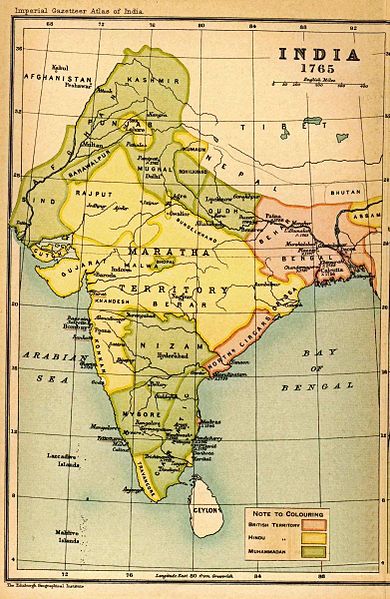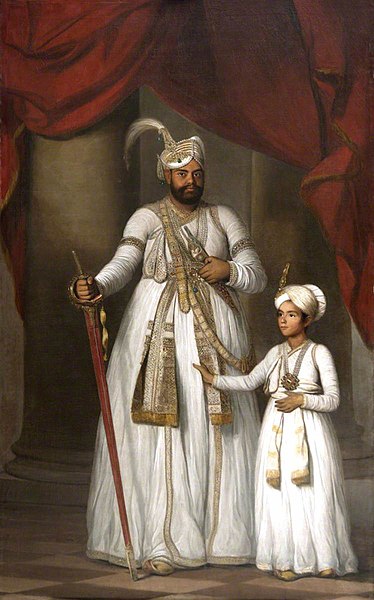The Carnatic Sultanate was a kingdom in South India between about 1690 and 1855, and was under the legal purview of the Nizam of Hyderabad, until their demise. They initially had their capital at Arcot in the present-day Indian state of Tamil Nadu. Their rule is an important period in the history of the Carnatic and Coromandel Coast regions, in which the Mughal Empire gave way to the rising influence of the Maratha Empire, and later the emergence of the British Raj.
Nawabate of Arcot, on the Bay of Bengal, marked as "Carnatic" at its height of power.
Nawab of Carnatic Azim-ud-Daula on the left, signed the Carnatic Treaty ceding tax rights to the British.
In the year 1702, Nawab Daud Khan, the Mughal Empire's local Subedar of the Carnatic, besieged and blockaded Fort St. George for more than three months, the governor of the fort, Thomas Pitt, was instructed by the British East India Company to vie for peace
Death of the Nawab Anwaruddin Muhammed Khan in a battle against the French in 1749, by Paul Philipoteaux
Arcot is a town and urban area of Ranipet district in the state of Tamil Nadu, India. Located on the southern banks of Palar River, the city straddles a trade route between Chennai and Bangalore or Salem, between the Mysore Ghat and the Javadi Hills. As of 2018, the city had a population 129,640. The sweet makkan peda is a local speciality while Arcot biryani, a rice-based traditional food, is also served here.
18th Century Arcot Gate
Image: Metropolitan Area of Vellore






